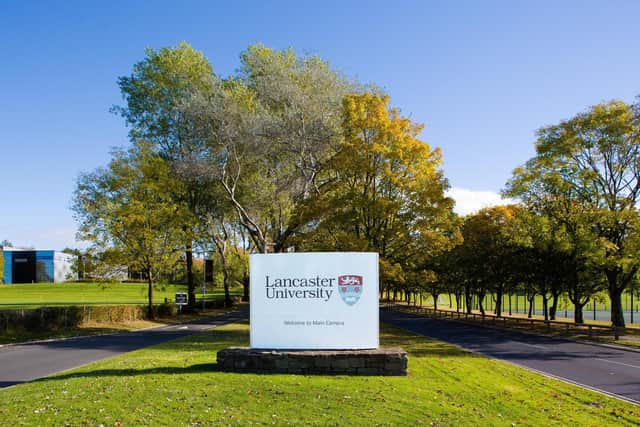Lancaster University gets £21m boost for green heating project
and live on Freeview channel 276
The heat network will supply heat to the university campus using a large heat pump, powered by a new solar farm and existing wind turbine.
The air source heat pumps will supply the university not only with low-carbon heating but hot water as well.
Advertisement
Hide AdAdvertisement
Hide AdThe initiative forms part of the government’s push to decarbonise the nation’s housing stock by moving buildings away from more costly fossil fuels, such as oil and gas, to a low-carbon, more efficient energy source that helps to keep bills low and supports the country’s drive to net zero by 2050.


Lord Callanan, minister for energy efficiency and green finance, said: “The UK is a world leader when it comes to reducing carbon emissions – but we must continue to push the boundaries to reach our net zero goal.
“I hope other universities can follow Lancaster’s lead by using renewable energy from solar and wind to power this impressive heat network, allowing them to decarbonise their campus.”
Energy Security Secretary Claire Coutinho said: “Innovative projects, like these announced today, are another example of why the UK is a world leader in cutting carbon emissions.
Advertisement
Hide AdAdvertisement
Hide Ad“We are investing in the technologies of the future so that families across the country will now be able to warm their homes with low-carbon, recycled heat - while creating thousands of new skilled jobs.”
Heat networks supply heating and hot water to homes and businesses via heat pumps or sources from underground, manufacturing, and waste management.
They help cut carbon emissions by supplying heat to multiple buildings from a central source, avoiding the need for households and workplaces to rely on individual, energy-intensive heating solutions, such as gas boilers.
Simon Guy, pro-vice-chancellor of global digital, and international, sustainability at Lancaster University, said: “(The university) aims to be among the best in the world for offering students and staff a sustainable and carbon-neutral campus in which to work and study.
Advertisement
Hide AdAdvertisement
Hide Ad“Our students want to go out into the world to make a difference – what better start to that ambition than a world-class university education which is mindful of the planet and places sustainability at the heart of its decision-making.”